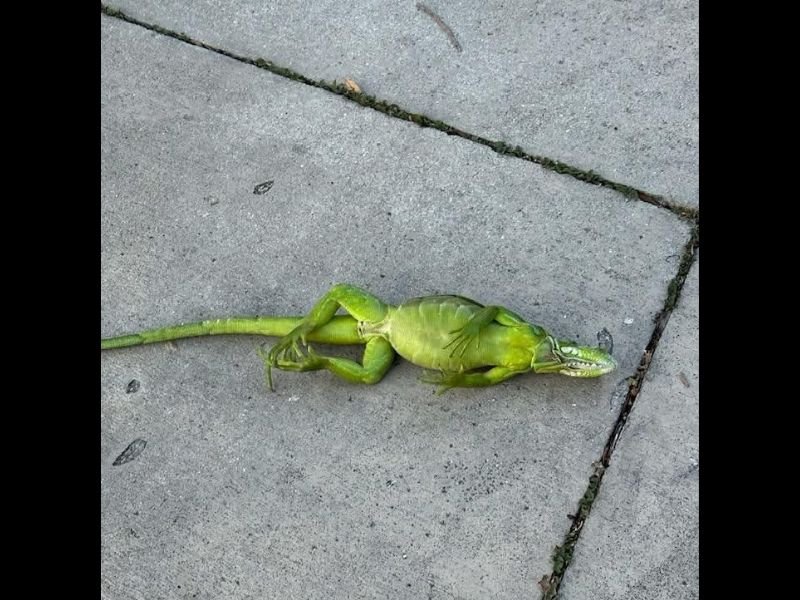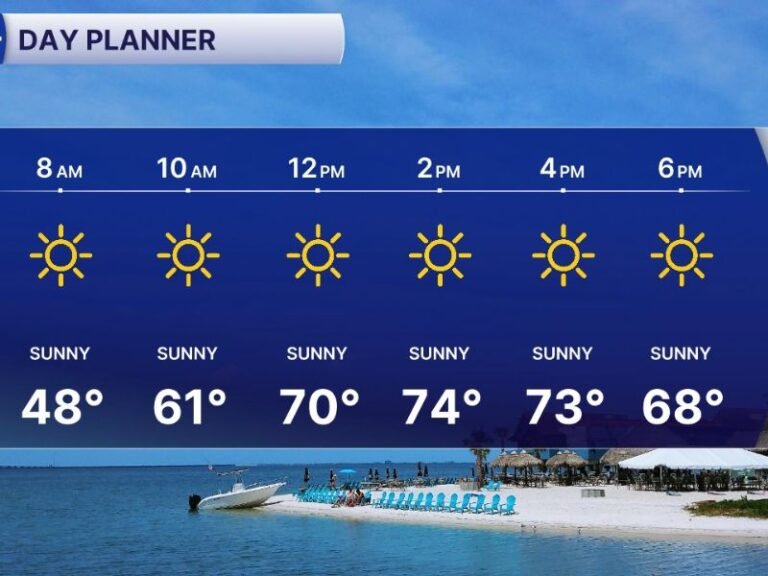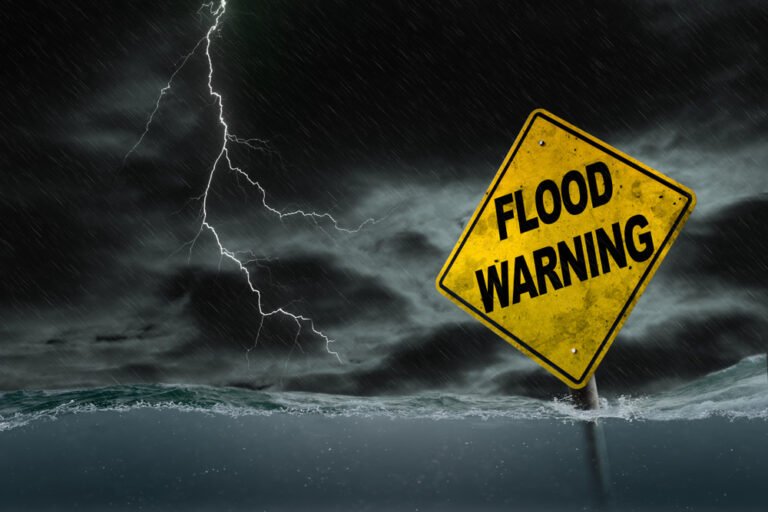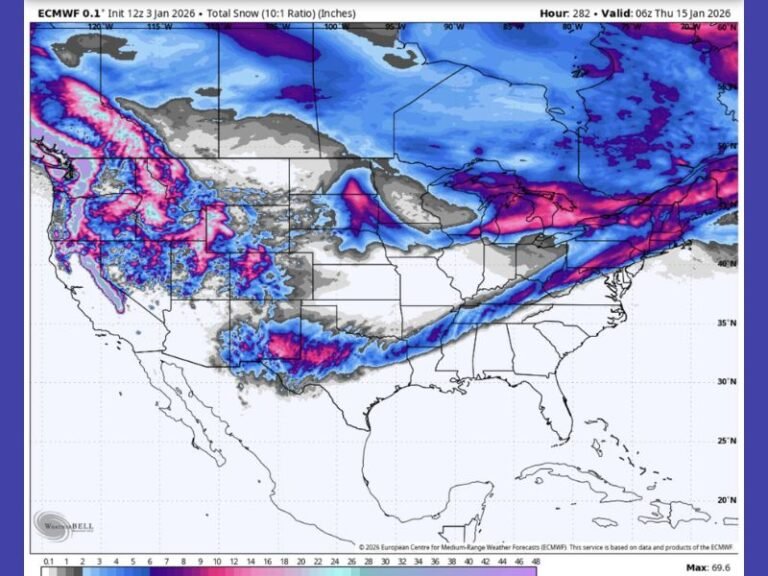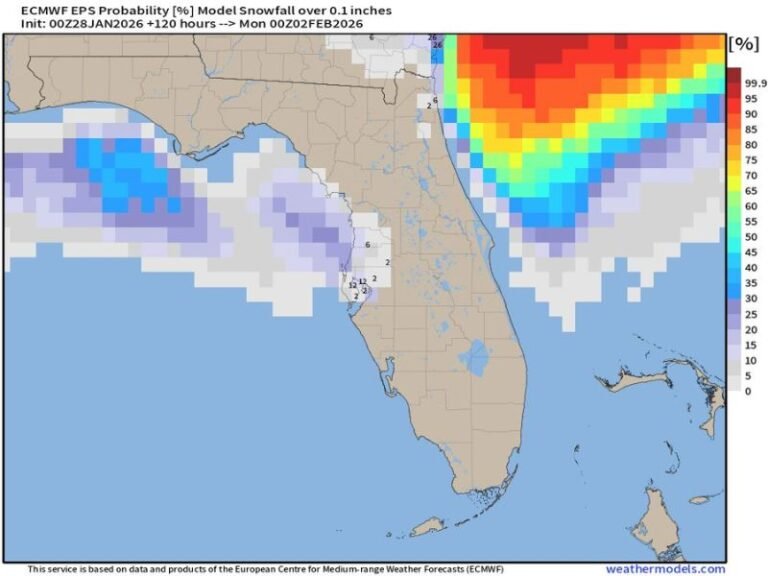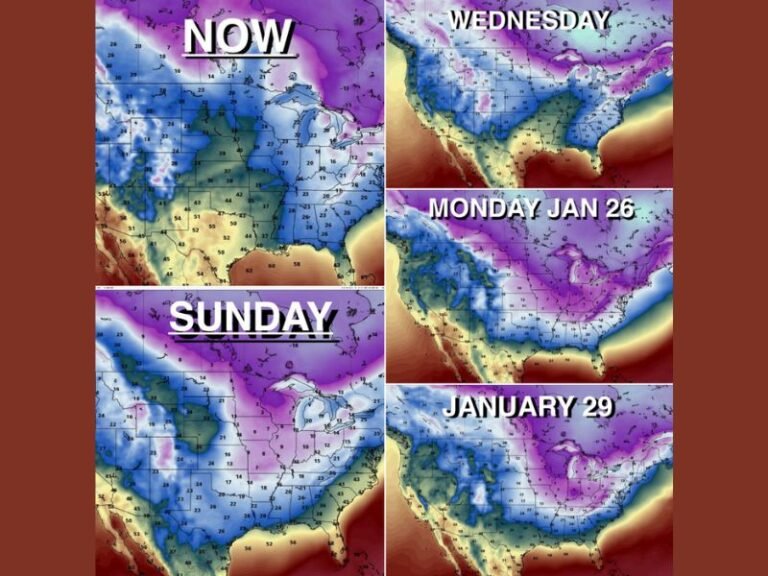Cold Weather Stuns Iguanas in Florida, Causing Them to Fall from Trees as Temperatures Hit 30s
PORT CHARLOTTE, Fla. — As temperatures dipped into the upper 30s across parts of Florida on Tuesday morning, residents in Port Charlotte witnessed a uniquely Floridian phenomenon — falling iguanas.
Meteorologist Matt Devitt of WINK Weather shared a striking photo showing a large green iguana sprawled on a sidewalk, writing, “This big guy just fell out of a tree in Port Charlotte this morning, where it was 38°. It’s not dead, just cold stunned. Only in Florida!”
What Happens When Iguanas “Freeze”
Experts explain that when temperatures drop below 45°F, the cold-blooded reptiles can become immobilized or “cold stunned”, losing their grip on branches and falling to the ground. Despite their motionless appearance, most recover once temperatures warm back up.
According to the Florida Fish and Wildlife Conservation Commission (FWC), the cold-stunning response is temporary and does not necessarily mean the animals are dead. Residents are urged not to move or relocate them, as they can revive suddenly when the sun returns.
“These iguanas are cold-blooded, so they rely on the environment to regulate body heat,” said an FWC spokesperson. “When temperatures drop rapidly, their systems slow down — but once they warm up, they usually regain mobility.”
Cold Snap Brings Rare Chill to Southwest Florida
The Port Charlotte area saw early morning lows between 37–39°F, as a strong Arctic air mass swept into the southeastern United States. While much of the region experienced brisk winds and frost advisories, Floridians woke up to a more surprising side effect — reptiles dropping from the trees.
Meteorologist Devitt said the event was tied to the same system responsible for record-breaking cold in other parts of the South this week. Areas across central and southern Florida could continue to experience near-freezing conditions overnight before temperatures rise later in the week.
Locals React to the Icy Iguana Sightings
Social media lit up with photos and videos of iguanas appearing “frozen” on sidewalks, porches, and even cars. Many users, however, echoed the reminder that the animals were not dead but in a temporary state of paralysis.
“I saw two on my driveway this morning — scared me half to death until one started moving again when the sun came out,” one Port Charlotte resident commented online.
The FWC reiterated that residents should avoid touching or attempting to warm iguanas directly, as they may bite or scratch upon waking. Instead, people are encouraged to let the sun and natural heat do the work.
A Signature Florida Cold-Weather Event
This odd occurrence has become almost an annual event in Florida whenever cold fronts sweep through during winter months. In previous years, wildlife officials and meteorologists alike have issued lighthearted reminders for locals to watch for “falling lizards” under trees and powerlines.
As temperatures climb back toward the mid-60s later this week, wildlife experts expect the iguanas to recover and return to their normal perching spots.
For the latest updates on weather impacts and wildlife across the Southeast, visit SaludaStandard-Sentinel.com.

